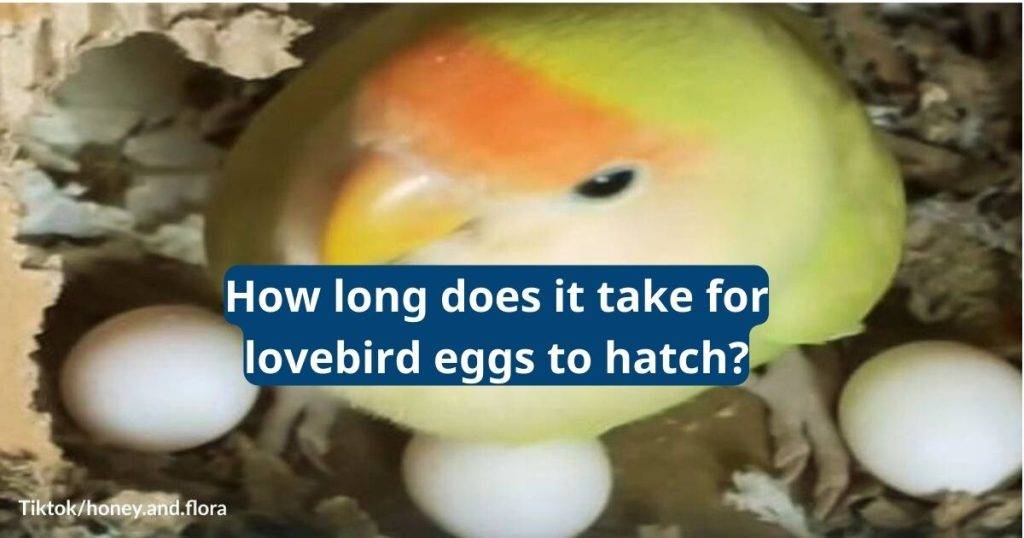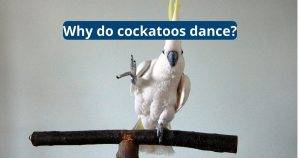How Long Does It Take For Lovebird Eggs to Hatch?

Lovebirds tend to lay a lot of eggs. It’s very important to keep an eye on them and notice when they are ready to hatch. It takes around 40 hours for a chick to emerge from its egg. This is an average, but it can vary based on several factors.
Incubation Period
Lovebird chicks will hatch after 21-23 days of incubation. Just before they hatch, the chicks will make a small crack or hole called a pip hole that will allow them to start breathing oxygen. It is important to not disturb the chicks when they do this. If you are hand feeding, remove the chicks from the nest and place them into a brooder or other warming enclosure.
The eggs can be candled at about 6 to 12 days after incubation begins, which is done by shining a light through the egg to observe embryo development. When an egg is ready for piping it will be slightly translucent with reddish blood vessels visible in the air space of the egg shell.
Once the chicks are piping, it can take up to 24 hours for them to fully emerge from their eggs. It is not a good idea to try to help them out of their eggs, as this can lead to problems later in life.

Breeding
Lovebirds lay a group of eggs called a clutch. It is rare that all of the chicks in a clutch will survive to hatch, but it is possible. They will not all be fertile, however, as only about 75% of lovebird eggs are expected to be viable in the wild.
In order to ensure a high percentage of fertile eggs, it is important to provide your birds with a safe, private breeding area, a high nest box attached to their cage and a nutritionally balanced diet. Feather DNA sexing is also a good idea before attempting to breed your lovebirds.
If you see that one of your chicks is dead, hold it up to a light and look for black “eyes” or retreated blood vessels. If they are absent, you can put the egg back with the rest of the clutch. Do not remove an egg from the clutch if it shows signs of being dead or is pushing out from the clutch, though, as this can be distressing for the mother.

Hatching
Lovebirds usually lay clutches of five to 12 eggs over the course of a few days. Once the hen has laid her entire clutch, she will sit on them for about 25 days of incubation. The eggs will become darker during this time. This is called pipping and is a sign that the egg is fertile.
The hen may begin to gather items like feathers and pieces of cage flooring into her nesting box to prepare it for the hatching chicks. She will also stop flying and spend more time in one place. This is normal and necessary for her body to focus on producing eggs.
It is very important that you have a proper incubator set up for the lovebird eggs. Temperature, humidity, and turning are key factors for a successful hatch. You should turn the eggs at least twice a day during this process. This will prevent the buildup of heat on one side of the egg.

Care
Lovebird eggs need to be carefully monitored and handled to ensure the best results. They need to be turned multiple times a day, and the temperature must be kept correct during the entire incubation period. In addition, a quality incubator is necessary to properly incubate the egg.
Once the chicks hatch, the mother will often reject any that are not fertilized. It is also important to note that, even if an egg looks infertile, it may still be viable if it floats in water. This means that the egg is still surrounded by blood vessels that have retracted, which shows that it was once an embryo.
While lovebirds are one of the easiest species to breed, it is not a guarantee that every single egg will hatch. Failed hatches can often be attributed to an inexperienced pair or too young birds. It is important to use feather DNA sexing and an experienced male and female for the most successful breeding experience.



